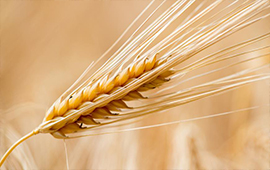At the moment, barley does not occupy the main positions among farmers around the world.
This crop was actively cultivated in Europe in the middle of the 20th century, and the peak of production was reached by the 1990s. After that, this crop gradually lost its popularity, giving way to wheat, rapeseed and other grains. Nevertheless, even in the 21st century, the demand for barley remains at a high level, and this crop ranks fourth among the most grown in the world, and the annual production amounts to 132 million tons. Barley is the basis for the preparation of malt, from which kvass, beer and whiskey are subsequently obtained, and also used as a fodder crop. Barley is actively used as feed for animals and birds, since this culture contains a lot of useful protein.
By the way, in 2019-2020, barley production reached its maximum in the last 20 years. In Europe, this crop is grown in France, Germany, Austria, Spain and the UK. At the same time, the cultivated area in these countries is insufficient, and therefore this crop is imported from other countries, including Ukraine and Russia.
What is needed to supply barley to the EU
In order to supply grain to EU countries, local producers need to take into account some of the specifics of trade with European countries. In particular, farmers need to regulate the use of pesticides and other fertilizers when growing cereals, since not all drugs are approved for use in Europe. The quality of products must be confirmed by special documents, which indicate all the data on the content of nutrients in the crop. In addition, the EU has established requirements for duties on cereals, which must also be taken into account when trading. In order to correctly draw up all the documents for working with European clients, you need to familiarize yourself with the requirements on the website of the Customs Union.
Features of the import of barley
As a rule, all grain imports are carried out by sea, since this type of transport is the cheapest. However, taking into account the situation with the coronavirus, even maritime transport suffers some difficulties in its work, since it takes more time and money to check employees, which makes sea transportation more expensive and longer. Nevertheless, despite these features, the import of this crop remains in demand.
Also, Ukrainian producers should take into account the local European competition, since the export of this crop is also carried out by France and Germany directly to the countries of the bloc.






